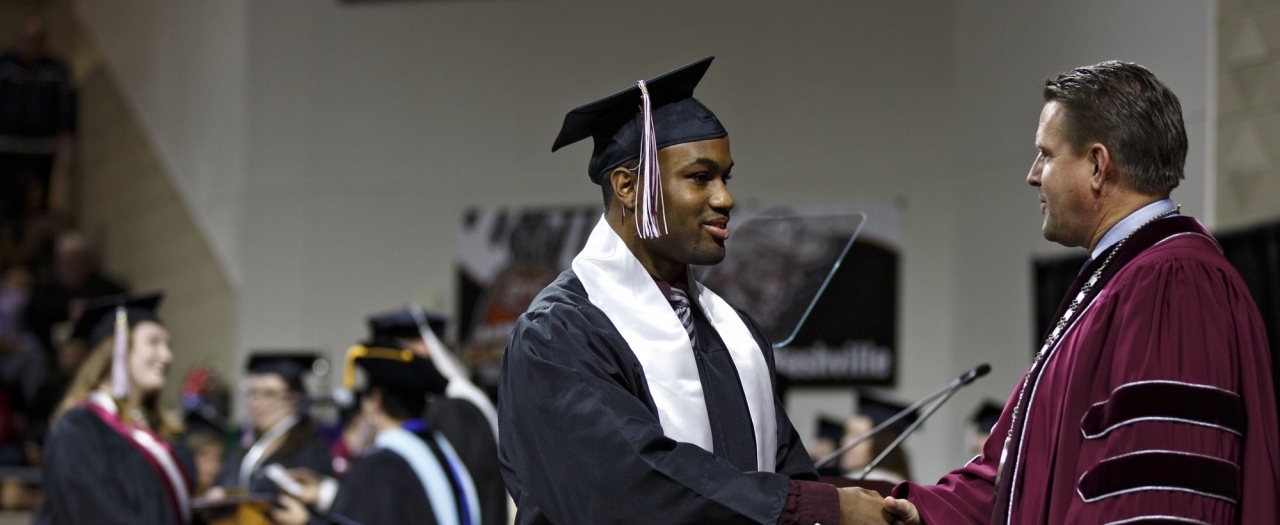The four-year graduation rate at Eastern Kentucky University has nearly doubled in the past seven years.
Of the freshmen who entered Eastern in Fall 2012, 29.5 percent graduated this year. The percentage has climbed steadily since only 15.7 percent of the Fall 2006 freshman cohort went on to graduate in four years.
The five-year graduation rate has increased from 33.2 percent to 45.2 percent, and the six-year rate from 38.3 percent to approximately 45 percent. The numbers are unofficial but not expected to change significantly before official numbers are announced later this fall.
In all cases, the current rates meet (six-year) or easily exceed (four- and five-year) goals set by the Council on Postsecondary Education for the University.
Dr. Eugene Palka, associate vice president for student success, attributed the dramatic improvement to several factors, including additional financial resources in the form of merit scholarships and need-based financial aid, improved awareness of students with academic challenges, programs aimed at facilitating academic recovery, academic enhancement programs and resources, and degree completion initiatives.
The increase in financial resources is making an EKU education more affordable and sustainable, Palka noted.
Once on campus, a student’s progress toward a degree is tracked closely through the DegreeWorks and Student Success Collaborative programs, making possible what Palka termed “improved situational awareness.” The Collaborative, for example, “enables us to identify bottlenecks, as well as major milestones, and follow through with a student.”
The University’s academic recovery programs include a fourth-week progress report each semester, mid-term recovery workshops and probation recovery workshops.
“The goal is to deal with a problem before it becomes too late and put remedial measures in place,” Palka said.
Academic enhancement programs and resources include tutoring centers; EKU GURUs, a student group recognized in 2015 by University Business magazine as a national “model of excellence” for enhancing student success; and learning communities, groupings within residence halls around common academic majors and interests.
Degree completion initiatives include a requirement that all students register when they reach 90 hours in order to facilitate “a greater sense of awareness” among advisers and students as the latter near graduation. “A missing course can delay graduation for as much as a year,” Palka noted.
Another degree completion initiative is the Project Graduate program, a statewide program that assists adults with at least 80 credit hours as they strive to complete their studies.
With new programs and services now in place, Palka predicts continued improvement in the graduation rates.
Additions in recent years include a Freshman Academy for Diverse Students, as well as a comparable program for juniors and seniors; a Student Success Center that targets under-represented minorities and first-generation college students; and a First Colonels program also tailored to first-generation students.
“The latest graduation rate data is encouraging,” Palka said. “We’ve come a long way, but we’ve got more ground to cover. Our number one goal now is to eliminate the achievement gaps between different groups of students.”
